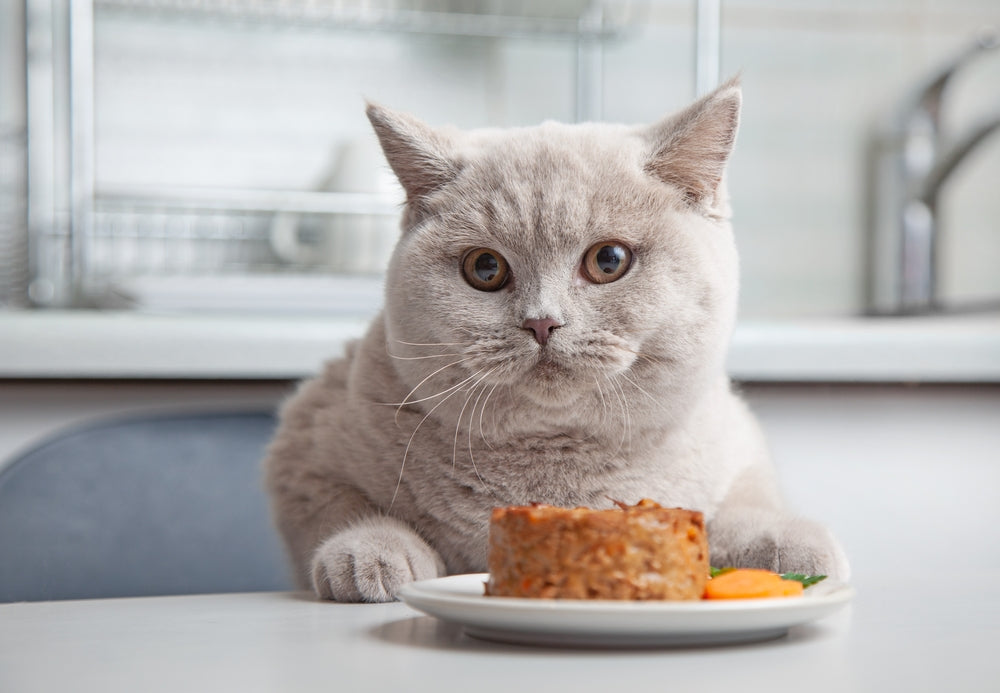
When it comes to feeding our feline friends, we all want to ensure they're getting the best—both in terms of nutrition and taste. With 30% of cat owners reporting that they feed their cats a diet of at least half canned food, the important question is raised: How long can wet cat food sit out? With a shared commitment to the safety and wellness of our cats, let's dive into this guide to keep your kitty happy and healthy.
Safety Guidelines for Wet Cat Food
Ensuring the safety of your cat’s wet food is essential in preventing bacterial growth and contamination, two factors that can quickly transform a nutritious meal into a potential health hazard. For cat owners, knowing how long wet cat food can stay out is a key consideration.
Experts generally recommend not leaving potentially hazardous foods—like those that are part of many pet food options, including dairy products, and meals containing meat, as well as prepared fruits and vegetables, cooked rice and pasta, and foods containing eggs—out for more than four hours. This guideline applies equally whether you're feeding raw cat food, dry cat food, or wet cat food.
After this period, the risk of harmful bacteria, such as Salmonella and E. coli, spikes significantly. These bacteria can lead to serious foodborne illnesses, which are concerning for all pet owners. Cats, much like their owners, require fresh food that’s free from contaminants to stay healthy.
To maintain the highest safety standards, especially in warmer conditions where bacteria flourish, it's important to manage how long food remains uneaten. Whether it's canned food, dry cat food, or freshly opened cat wet food, ensuring that uneaten food doesn’t sit out for too long is essential. For instance, transitioning from dry kibble to wet food might require adjustments in feeding routines to prevent leaving food out for extended periods.
Additionally, storing leftover wet food properly is the last step in ensuring its safety. Any unused portion of wet cat food should be promptly refrigerated in an airtight glass or plastic container to prevent spoilage. This is not only beneficial for preserving the quality of the food, but also helps in managing your cat's diet.
Factors Affecting Wet Cat Food Shelf Life
Several conditions including temperature, humidity, and packaging influence the longevity of wet cat food outside the fridge. High temperatures and humidity can accelerate food spoilage and reduce the safe consumption window for how long you can leave wet cat food out safely.
Here are a few tips to extend the shelf life of your cat's wet food:
- Serve portions your cat can finish in one sitting to avoid leftovers.
- Store unopened wet food in a cool, dry place.
- Refrigerate opened but unused portions promptly in an airtight container.
By understanding these factors, you can ensure that every bite your cat takes is as fresh and safe as possible while addressing concerns about cat eating patterns.
Signs of Spoiled Wet Cat Food
Knowing when wet cat food has gone bad is key to your cat's health. Look out for these signs of what to avoid feeding your cat:
- Off-putting smell: Spoiled food often has a sour or rancid odor.
- Color change: Any discoloration can indicate spoilage.
- Mold: Visible mold growth is a clear sign the food is unsafe.
If you encounter any of these issues, discard the food immediately to avoid risking your cat’s health.
Best Practices for Handling Wet Cat Food
Proper handling and storage of wet cat food can significantly minimize the risk of food spoilage and contamination. Always use clean utensils to serve food and seal any leftovers securely to maintain freshness. Monitoring expiration dates is key, as feeding your cat expired food can lead to digestive and health problems.
For those seeking the highest pet nutrition and safety standards, PrettyPlease wet cat food offers peace of mind. And, when used alongside PrettyLitter cat litter, you are taking a holistic approach to your cat’s health.
Our innovative, color-changing cat litter helps monitor your cat's well-being, while our food ensures they receive all the nutrients they need to thrive. This combination offers an unparalleled support system for your cat’s overall health, making it easier to keep track of their well-being and react promptly to any potential issues.
Embracing Best Practices in Wet Cat Food
Caring for our feline friends means paying close attention to their dietary needs and food quality. Understanding how long wet cat food is good for and implementing best practices for food safety are integral parts of responsible cat ownership.
At PrettyLitter, our commitment to quality and safety reflects our dedication to providing your cat with the best possible care. By choosing PrettyPlease, you’re nurturing their health, happiness, and the special bond you share. And with the right knowledge, we can ensure our cats remain satisfied and ready to enjoy their next meal safely.
Sources:
- Food Standards Australia New Zealand. 2 Hour 4 Hour Rule. https://www.foodstandards.gov.au/business/food-safety
- Penn Today, University of Pennsylvania. How to Avoid Food Poisoning from E. coli and Salmonella. https://penntoday.upenn.edu/news
- The Veterinary Clinics of North America. Feeding Cats for Optimal Mental and Behavioral Well-Being. https://pubmed.ncbi.nlm.nih.gov/32653265/


Follow Us